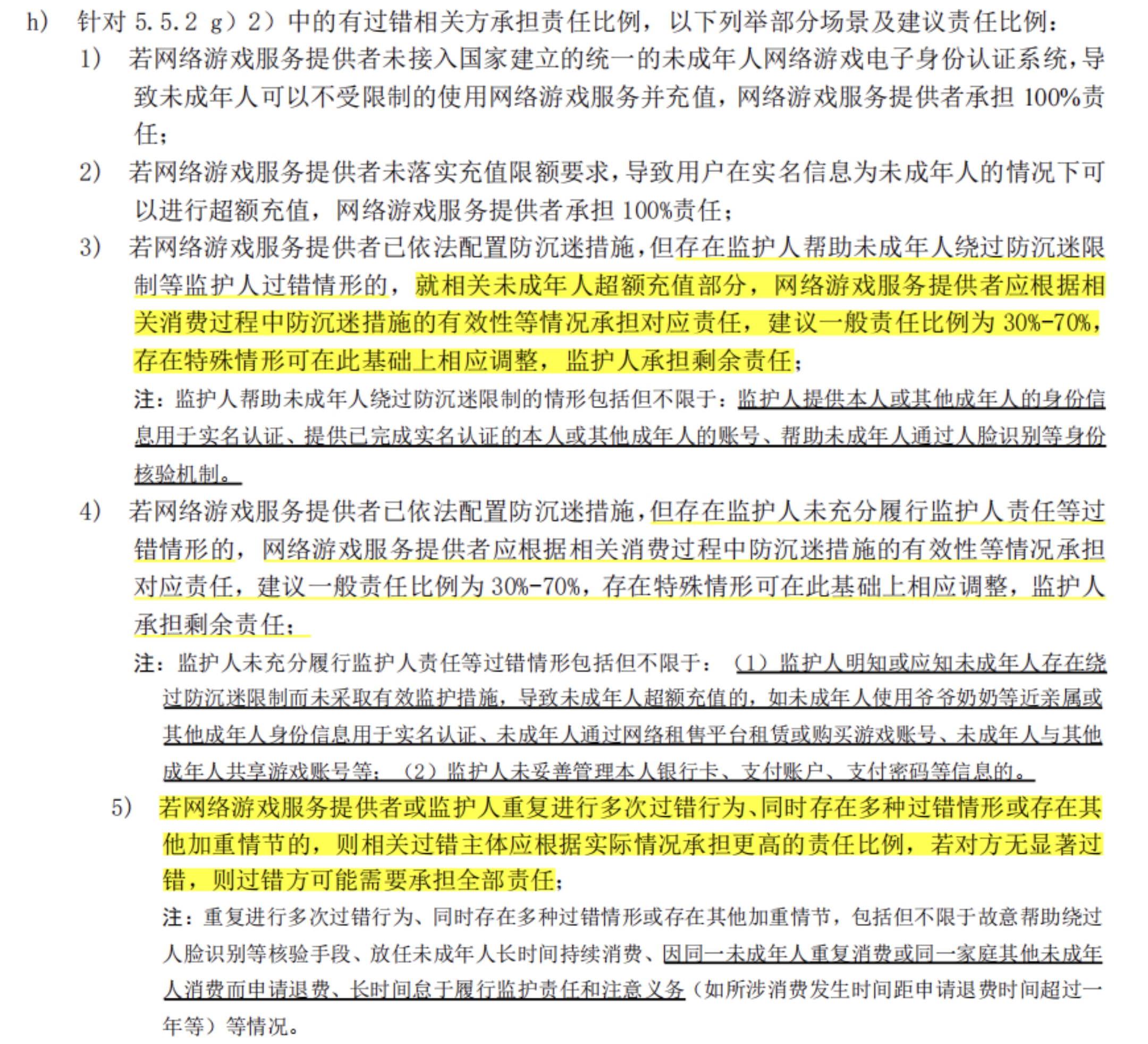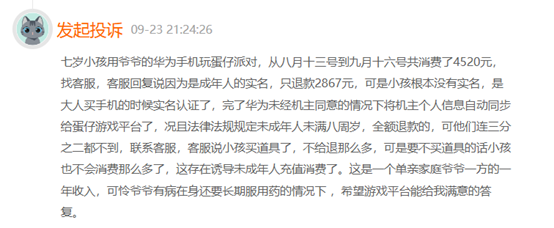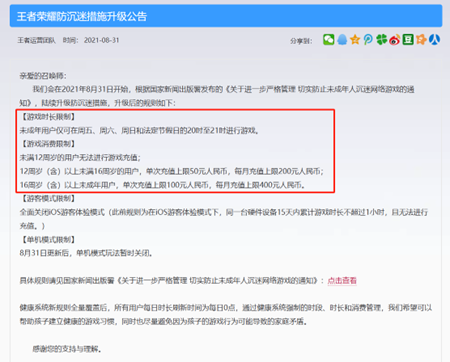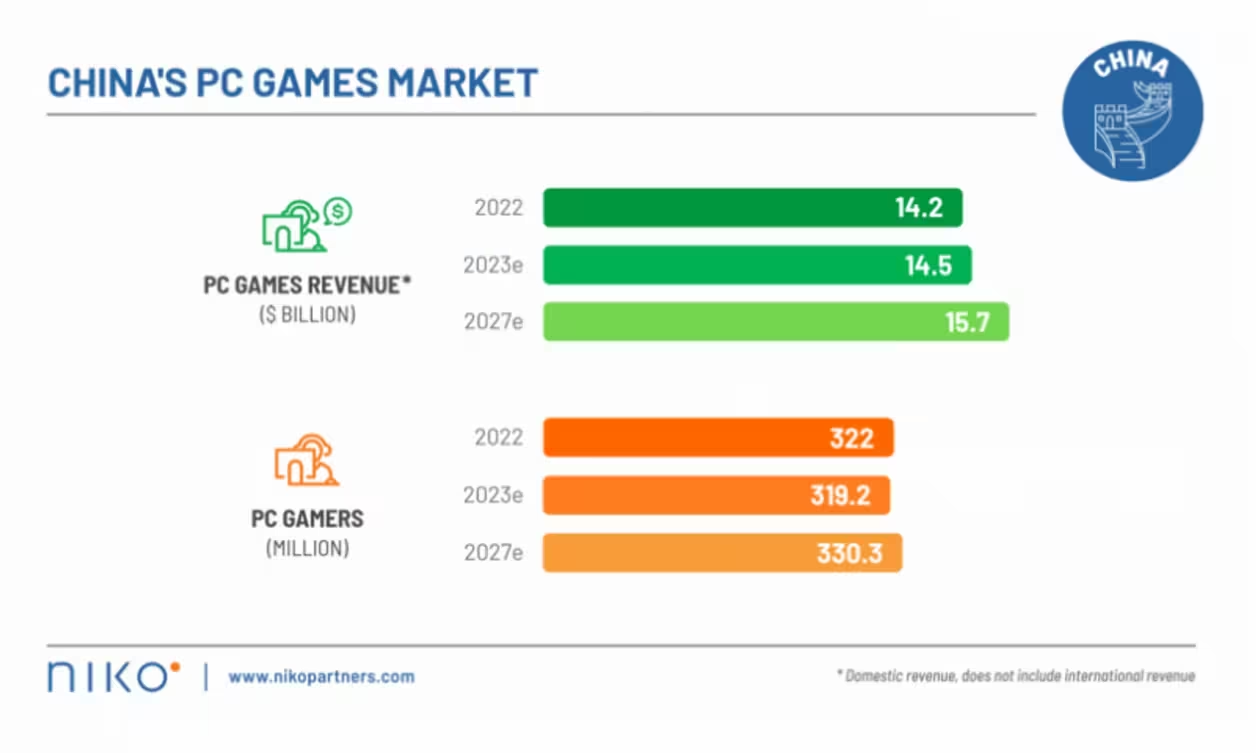"Informed AI News" is an AI-curated publications aggregation platform, ensuring you access only the most valuable information, with the aim of eliminating the information gap and transcending the confines of information cocoons. Find out more >>
New Standards for Minors' Gaming Expenditures in China
- summary
- score




The long-standing debate over minors' excessive gaming expenditures has seen a significant shift. For over two decades, the issue has been contentious, with numerous cases of young individuals spending exorbitant amounts on games, often leading to public outcry. Parents typically blamed game developers, demanding the closure of all online games. However, a new standard set by the Chinese Internet Association aims to clarify responsibilities.
This standard, known as the "Requirements for the Management of Consumption in Online Games for Minors," introduces specific limits on minors' spending. For example, children under 8 are prohibited from making any in-game purchases, while those aged 8 to 16 are limited to 50 yuan per transaction and 200 yuan monthly. For 16 to 18-year-olds, the limits are set at 100 yuan per transaction and 400 yuan monthly.
Importantly, the standard also tackles the issue of refunds, proposing a proportional responsibility model. If parents knowingly circumvent game restrictions or neglect their supervisory duties, they could be held responsible for 30% to 70% of unauthorized purchases. This approach seeks to balance the accountability between parents and game companies, moving away from solely blaming developers.
The implementation of this standard could significantly change the dynamics of the gaming industry in China, shifting some of the responsibility from game companies to parents, and promoting a more balanced approach to managing minors' gaming activities and expenditures.
This development marks a significant step towards a more regulated and responsible gaming environment, emphasizing shared accountability between parents and the gaming industry. It reflects a broader societal effort to adapt to the digital age, where technology and traditional parenting roles intersect.
| Scores | Value | Explanation |
|---|---|---|
| Objectivity | 5 | Content provides a balanced view on the new standards, outlining both parental and industry responsibilities. |
| Social Impact | 4 | The new standards could influence public opinion on parental and industry roles in managing minors' gaming expenditures. |
| Credibility | 5 | Content is based on a new standard set by the Chinese Internet Association, a credible source. |
| Potential | 4 | The standards have the potential to significantly change the gaming industry's approach to minors' spending. |
| Practicality | 4 | The standards are practical and directly applicable to managing minors' gaming expenditures. |
| Entertainment Value | 3 | Content is informative but lacks direct entertainment elements typical of gaming news. |